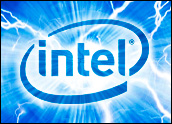
Despite improvements in processing power in recent years, battery life remains an issue with the growth of mobile devices. Intel has looked to address this with a new family of Core processors code-named Haswell, which the company said Thursday will offer up to 50 percent more battery life for laptops than its previous Ivy Bridge chips provided — all without impairing performance.
The Haswell chips are designed specifically with those on-the-go devices, notably laptops and tablets, and its main focus is on decreasing power consumption. In idle or standby mode the chips can even extend battery life for up to 20 percent.
“That’s in line with previous comments Intel has made,” said Charles King, principal analyst at Pund-IT. “The company has said that Haswell represents a ‘once in a decade’ leap forward in terms of battery and system performance, and I haven’t heard anything that contradicts those claims.”
Intel did not respond to our request for further details.
Peak Performance
This could be a major power play for Intel, especially as it could help enable longer use of a device without needing to seek out that power outlet.
“It gets you into that class of ‘all-day’ battery life,” said Craig Stice, senior principal analyst for compute platforms at IHS iSuppli. “Typically with an Ivy Bridge processor you are getting four hours or five hours.”
The key, of course, is tied to that ubiquitous phrase “actual results may vary.”
“Battery power is always usage case and there are discrepancies,” Stice told TechNewsWorld. “However, this is clear that Intel is looking at getting into the ‘nine hour’ market, where it allows for using a PC for a longer time and not worrying about plugging it in at lunch time. Not worrying about the battery going down is a pretty powerful enhancement for these devices.”
Sleeker Devices
Not only do the Haswell processors have the ability to improve the battery life without affecting performance, but this could be the first case where the processors are built with sleeker and slimmer devices in mind.
“The big story here is that with these improvements prices, weight and battery life on Ultrabooks will come very close to tablets,” said Rob Enderle, principal analyst at the Enderle Group. “That’ll make for a really interesting choice because most of these systems are expected to have touchscreens and ship with Windows 8.1 for the holiday season.”
That could be a bit of a game-changer, but it will still depend on the hardware. It could result in some affordably priced products just in time for the holidays.
“That could both have a lot of folks finally tossing out their Windows XP laptops and reconsidering whether they need a large tablet at all,” Enderle told TechNewsWorld. “It could really do wonders from hybrids, which finally will provide the best of both worlds as opposed to the worst of both.”
Form Factors
The question, however, is whether such new form factors are enough, even with improved battery life, to get Intel back in the game.
While Microsoft has seemingly hedged its bets by offering Intel-supported Windows 8 — as well as Windows RT, which utilizes the ARM processors instead of Intel’s x86 processors — Intel is left hoping for a resurgence of those x86 devices.
“What Haswell does to the PC market is interesting. It enables thinner form factors, but it is really a question of whether this change in form factor will reinvigorate the PC market. That’s a big PC,” said Roger Kay, principal analyst at Endpoint Technologies Associates. “However, consumers have moved beyond the PC.”
The new Intel chips may be competitive, “but that doesn’t mean these will end up in devices that consumers actually want to buy,” Kay added. “The market for the x86 chips is really the PC, and while it is growing for Android, for now most of the devices will be Windows.”
Thus Intel’s solution might be an answer to the wrong question.
“The issue here isn’t Intel, but rather Microsoft,” Kay told TechNewsWorld. “Microsoft’s shortcomings circle back to become Intel’s problems, and even if Intel does everything right, they are not really in the best position.”
New Innovation
Consumers ultimately will get to make the final decision on whether better battery life will get them to consider an Ultrabook-style device over a tablet.
“With Haswell, it appears that Intel’s OEM partners will have the technologies in hand to deliver x86-based products that rival the iPad and similar products on virtually all those counts, and also support onboard ‘perceptual’ features that Apple and other ARM-centric vendors can’t touch,” said King. “Putting aside issues concerning Windows 8 for a moment, if Haswell deliver what Intel promises, these new tablets, laptops and hybrids should also provide a litmus test on whether consumers prefer substance or style.”
What Haswell will also deliver is devices that are truly designed with these processors in mind, thus opening up new form factors.
“This has already kickstarted innovation,” added IHS iSuppli’s Stice. “We haven’t seen a lot, but Intel is already tooting its horn about what the company plans to introduce in the coming weeks. This will include ultra-thin devices built from the ground up. Everything else to date has been retrofitted.”





















































